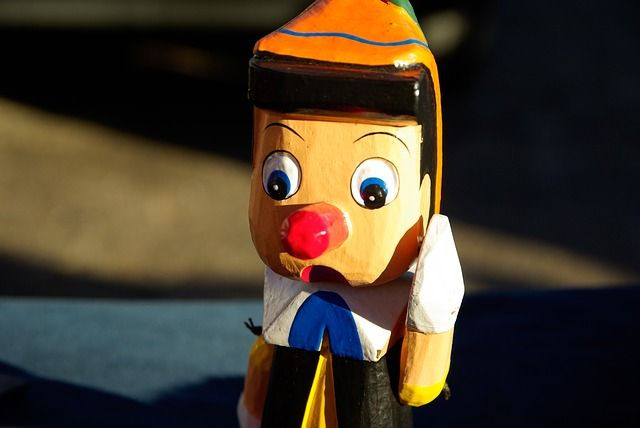Is It Okay To Tell A White Lie? Young Kids Don't Think So

White lies weigh a lot heavier on the soul the younger you are, suggests a new study out of McGill University in Montreal, Canada.
Researchers recruited nearly 100 children from the ages of 6 to 12 to take part in an experiment in which they listened to 12 vignettes. The vignettes portrayed different instances of someone lying or telling the truth. Sometimes the person’s statement hurt others, such as pointing the finger at someone else for what they did or tattling on them; sometimes they helped, such as when they took the blame by falsely confessing to a misdeed. Aside from judging the morality of the person in the vignette, the children were asked to either punish or reward the person for their act.
Ultimately, younger kids were much more absolute in their views — fibs, even if virtuous, were generally rated more negatively and punished than truthful statements were, even if the truths actively hurt someone. Older children, however, were less likely to punish and view negatively fibbers who saved someone’s skin but more likely to if a truth-teller was a tattler.
"Younger children see things more starkly — truths are good and lies are bad,” explained co-author Shanna Mary Williams, a recent PhD graduate from McGill, in a statement. “But by the time they are 10-12 years old, children become more aware that truth and lies are less binary. The older they are, the more interested children are in the consequences of these actions. They are also more able to start looking at the intentions behind the speech."
The children, regardless of age, were perfectly able to tell apart lies from truths; they struggled to differentiate "good" fibs from "bad" truths the younger they were. That likely reflects their earliest lessons passed down onto them from their parents and guardians, the researchers said.
"Children get a lot of messages from their parents saying that lying is always bad, but at the same time they see their parents telling 'white' lies to make life easier,” lead author Dr. Victoria Talwar, a professor in the Department of Educational and Counselling Psychology at McGill, said in the university release. “Depending on their age, this is likely to be a bit confusing for children.”
In light of that, the researchers believe their findings suggest that parents might need to clear the air with their kids about morality and white lies at a younger age to lessen their confusion.
The findings were published in International Review of Pragmatics.
Source: Talwar V, Williams S, Renaud S-J, et al. Children’s Evaluations of Tattles, Confessions, Prosocial and Antisocial Lies. International Review of Pragmatics. 2016.
Published by Medicaldaily.com



























